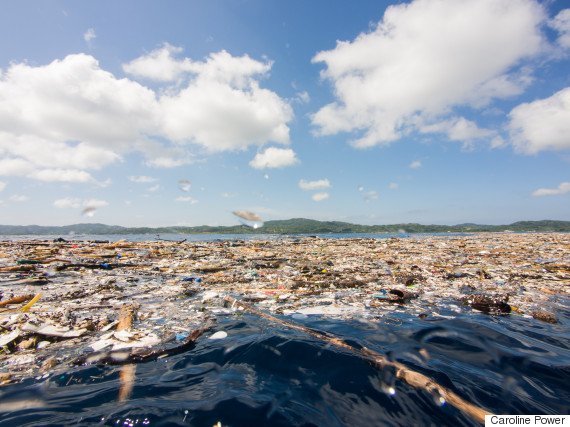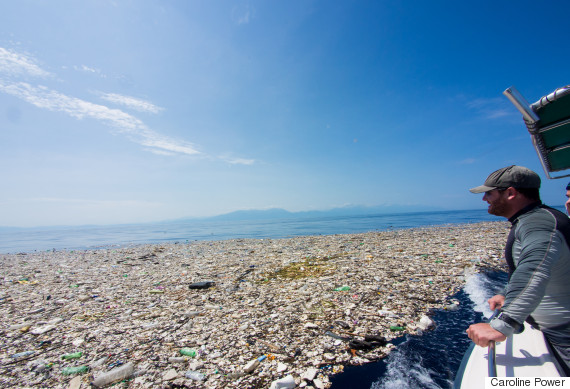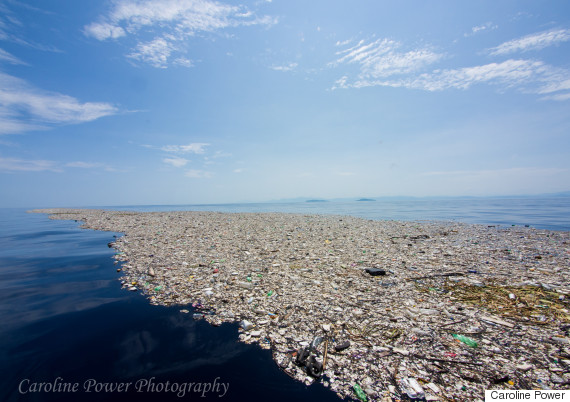Many people don’t think about how their daily habits and actions impact the planet. I am lucky enough to live in a place where those impacts are visible. I was born and raised in London but have spent the last 11 years working for a marine conservation organisation on a tiny island in the Caribbean. I wanted to be a marine biologist since I can remember; I was raised by parents who cared about protecting the environment and recycled long before it was fashionable. One of the programs I work on is an anti-plastics and plastic alternatives campaign.
When I visit London, it saddens me to find my friends still using plastic bags, buying plastic bottled water, eating out of Styrofoam boxes with plastic forks. When questioned, they shrug it off and say they put it in the bin; they recycle the plastic. The problem is solved. It isn’t. An estimated 15-40% of the plastic trash used in coastal areas ends up in the ocean, even when it is put into bins, mostly due to overflowing landfill sites. Our planet is choking with trash and no number of beach cleanups can stop it. We are treating the symptoms, not the disease. As a country, as a species, as individuals we need to stop consuming single use plastics.

The facts are shocking. Over 5.25 trillion pieces of plastic are already in the world’s ocean. That number is predicted to double by 2025. Each minute, one dump truck of trash enters the oceans; by 2050 it will be three per minute and the number of plastic pieces in our seas will outnumber fish. Over 480 billion plastic drinking bottles were used globally in 2016, the equivalent of 20,000 per second. Per second! That is enough to reach half way to the sun. Only a small percentage were recycled. More than five trillion plastic bags are used and discarded annually. The United States uses 500 million plastic straws every day.
This is a global problem; there is not one country at fault. We are all to blame. Therefore, we can all help to solve the problem. REFUSE, REDUCE, REUSE, RECYCLE in that order. Recycling is not enough. It has been made so easy in London many people no longer avoid the use of plastics. However, the carbon footprint of a reusable item is far lower than that of single use ones. Making sustainable choices is much easier than people think. I challenge anyone reading this to pick at least five of the following tips and abide by them as if the planet’s life depends on it:

– No more bottled water. Buy a reusable bottle. The metal insulated bottles keep drinks hot or cold for up to 24 hours. At restaurants, specify tap water, not bottled.
– Buy drinks in cans or glass bottles as they are easier to recycle than plastic. Also, bottle caps and the plastic labels on bottles are not widely recyclable.Like fizzy drinks? Invest in a Sodastream. Mine paid for itself in a few months.
– REFUSE the straw. Do you really not know how to find your mouth with that cup or bottle?
– No more plastic bags. Ever. This means Ziplocks and produce bags. There is no excuse. Inexpensive, easy-to-carry eco-alternatives abound.
– No more cling film. There are several companies that now make reusable “cling film”.
– Switch to bamboo toothbrushes. Widely available online or at Whole Foods, they are competitively priced.
– REFUSE Styrofoam containers and plastic plates and cutlery. You will have to pay attention to how your food and drinks are served. Before you order, request paper or biodegradable. None available? Request the restaurant make the change. If they don’t, shame them and eat somewhere else that actually cares about this planet. Eating that take out at home? Then you don’t need that fork. I carry a fork with me if I know I will be dining at food markets.
– Looking forward to beer gardens this summer? Everyone is. The downside is that most drinks are served in plastic cups. REUSE that cup as much as possible. Insist the barman refill them. Then make them do it. This summer at Underbelly, despite my girlfriend repeatedly asking the barman to refill her cup, he binned it. She made him dig it out and used it anyway.
– Large UK super markets idiotically package produce in plastic bags and containers. Ask them to stop. Until they do, buy unpackaged produce (and don’t put it in a plastic bag) or shop at smaller local markets that are less likely to pre-package their fruits and veggies. If you are feeling inspired, there are several zero waste markets in the UK.
Write to your politicians, restaurant owners, super market chains, etc. Ask them to ban single use plastics. France just banned all plastic dishes, cups, and utensils. If they can do it, so can we.
Many of you have seen my viral photos of a sea of plastic in the Caribbean. Think about those images every day and adjust your habits accordingly.
